EUS faculty are represented in all four divisions of the College. Core faculty tend to teach EUS courses every year and serve as academic advisers to EUS students. Associate faculty members teach some EUS courses and serve on Moderation and Senior Project boards.
EUS Steering Committee
-
What we doThe EUS Steering Committee consists of faculty members from each of the four academic divisions of the College and the program director. This group represents the interdivisional nature of EUS. The steering committee makes decisions about the EUS curriculum and program plans, graduation requirements, and events.
-
Who we are
- EUS Program Director: Alex Benson
- ES Concentration Director: Beate Liepert
- Social Studies: Yuka Suzuki
- Science, Mathematics, and Computing: Cathy Collins
- The Arts: Olga Touloumi
- Languages and Literature: Peter L’Official
Core Faculty
-
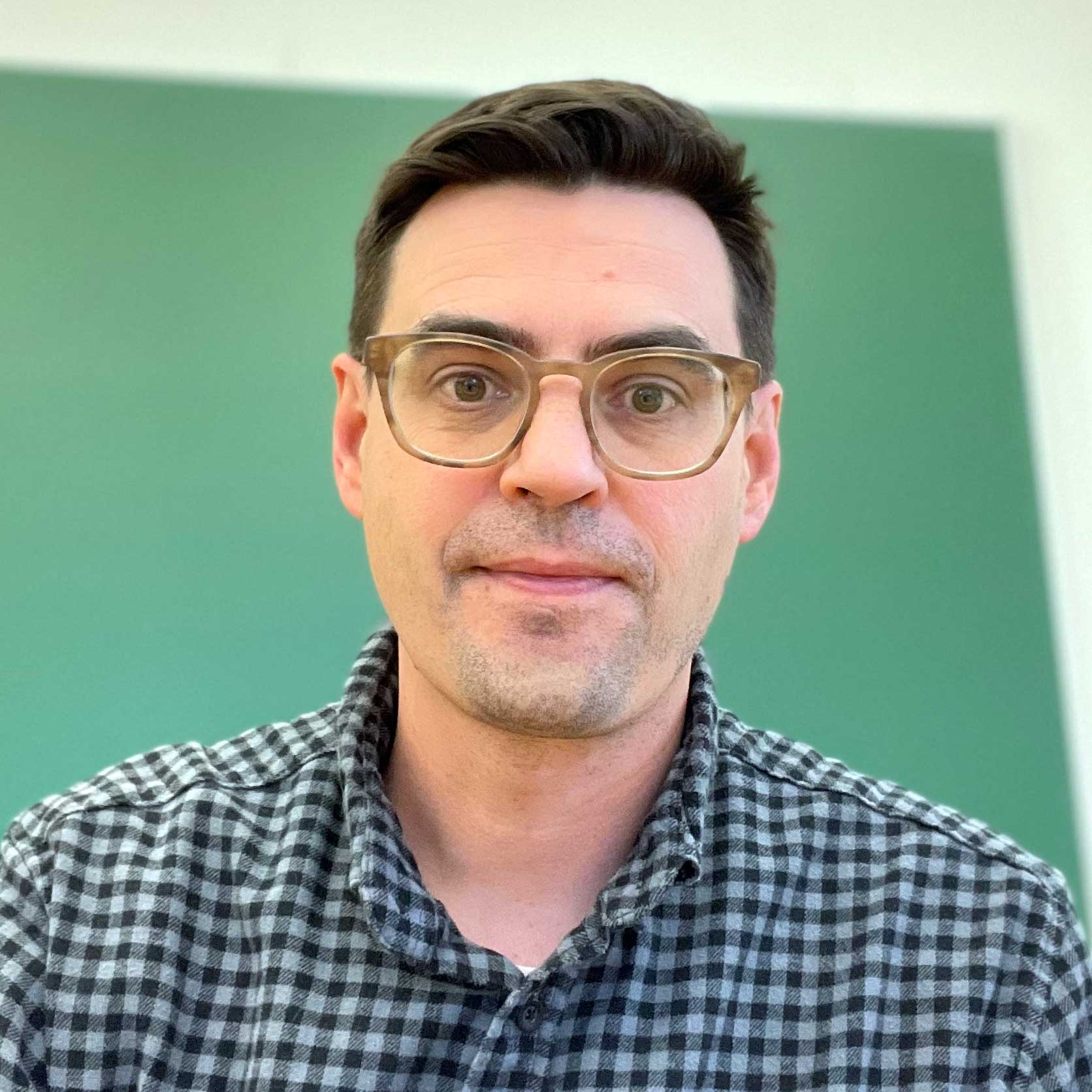 Alex Benson, DirectorLiterature
Alex Benson, DirectorLiterature
Alex Benson, Director
Literature
Professor Benson specializes in 19th and 20th century literature of the United States, with interests in media and print cultures, sound studies, the history of anthropology, and environmental humanities. He is the author of Sound-Blind: American Literature and the Politics of Transcription (University of North Carolina Press, 2023). A second book project in progress examines representations of species extinction. His writing has also appeared in scholarly journals including PMLA, Narrative, Leviathan, Small Axe, and Criticism and in the edited volume Contesting Extinctions: Decolonial and Regenerative Futures.
BA, PhD, University of California, Berkeley. At Bard since 2012.
Email: [email protected] -
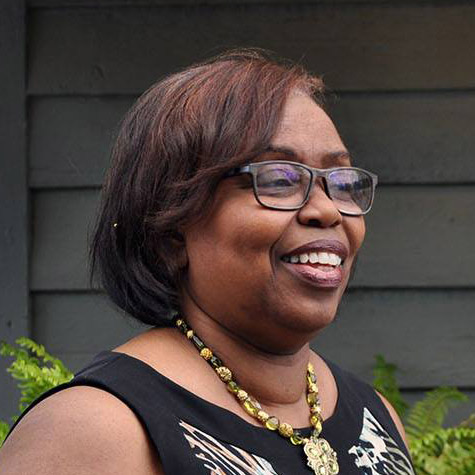 Myra ArmsteadHistorical Studies
Myra ArmsteadHistorical Studies
Myra Armstead
Historical Studies
Lyford Paterson Edwards and Helen Gray Edwards Professor of Historical Studies
BA, Cornell University; MA, PhD, University of Chicago. Specialization: U.S. social and cultural history, with emphasis on urban and African American history. Fellowships: Danforth-Compton, Josephine de Karman, University of Chicago Trustees, and New York State African-American Research Institute. Frederick Douglass Award, Association for the Study of Afro-American Life and History (Sullivan County, New York, chapter). Author of Freedom's Gardener: James F. Brown, Horticulture, and the Hudson Valley in Antebellum America (2012); Mighty Change, Tall Within: Black Identity in the Hudson Valley (2003); “Lord, Please Don’t Take Me in August”: African Americans in Newport and Saratoga Springs (1999). Speaker in the Humanities, New York Council for the Humanities (2003–11). Member, New York Academy of History (since 2006). NEH Fellow/Schomburg Center Scholar-in-Residence (2014–15). At Bard since 1985.
Research Interests: Research: urban history, African-American history, public history, African-American and American church history Teaching: urban history, African-American history, public history, 19th- and early 20th-century U.S. social and cultural history
Fairbairn 105
[email protected] -
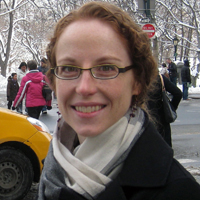 Katherine Morris BoivinArt History
Katherine Morris BoivinArt History
Katherine Morris Boivin
Art History
Assistant Professor of Art History
BA, Tufts University; MA, MPhil, PhD, Columbia University; postdoctoral fellowship at the Université de Montréal. Previously taught at Université de Montréal and Columbia University, where she worked on the groundbreaking digital project “Romanesque Churches of the Bourbonnais.” She has worked at the Los Angeles County Museum of Art, Montreal Museum of Fine Arts, and The Cloisters Museum, New York, where she still gives regular gallery talks. Publications include “The Chancel Passageways of Norwich,” Norwich: Medieval and Early Modern Art, Architecture, and Archaeology; “Villard Bound and Unbounded,” AVISTA; and “Der Lettner in Gelnhausen,” Gelnhäuser Geschichtsblätter. Recipient: Fulbright Research Fellowship to Germany, British Archaeological Association Conference Travel Grant, and other grants and fellowships. Has presented at conferences throughout the United States, United Kingdom, and Germany on such subjects as double-ended churches in the late Middle Ages, representations of the crucifixion in medieval art, sacred spaces in medieval travel literature, and humor and folly in medieval art. At Bard since 2013.
Fisher Annex 109
[email protected] -
 Cathy CollinsBiology
Cathy CollinsBiology
Cathy Collins
Biology
Associate Professor of Biology
BA, Pitzer College; MS, University of Arizona; PhD, University of Kansas; postdoctoral research, Washington University. She previously taught at Colby College, where she was Clare Boothe Luce Assistant Professor in the Department of Biology. She has published in Forest Ecology and Management, AAAS-Science Advances 1, Oecologia, PLoS ONE, Biological Conservation, and Journal of Ecology, among others, on such subjects as fragmentation and its impact on Earth’s ecosystems, habitat specialization patterns of neotropical birds, historic agriculture, and land-use history. Honors include a National Science Foundation Research Experience for Undergraduates grant, which allowed her to conduct studies in South Gondar, Ethiopia; and numerous research and travel grants from Colby and the University of Kansas; and a Thomas J. Watson Foundation Fellowship (Australia). She has presented her work at the Ecological Society of America, American Ornithologists’ Union, Harvard University, Cary Institute of Ecosystem Studies, and at venues in Ethiopia, France, and Australia. At Bard: 2010–11; 2016– .
RKC 209
[email protected] -
 Robert CulpHistory
Robert CulpHistory
Robert Culp
History
Associate Professor of History
BA, Swarthmore College; MA, University of Michigan; MA, PhD, Cornell University. Grants from National Endowment for the Humanities, Spencer Foundation, Fulbright Foundation, American Council of Learned Societies, Committee for Scholarly Communication with China. Articles and reviews in Modern China, Twentieth-Century China, and Journal of Asian Studies. At Bard since 1999.
Fairbairn 101
[email protected] -
 Gidon EshelPhysics
Gidon EshelPhysics
Gidon Eshel
Physics
Research Professor
BA, Haifa University, Israel; MA, MPhil, PhD, Lamont Doherty Earth Observatory of Columbia University. Specializes in oceanography, climatology, geophysics. Senior Fellow, Center for Environmental Science and Argonne National Laboratory (2002–07); principal investigator, Center for Integrating Statistical and Environmental Science, University of Chicago (2001–03); assistant scientist, Woods Hole Oceanographic Institution (1998–99). Assistant professor, University of Chicago (1999–07). Author, Geophysical Data Analysis (Princeton University Press, 2008). Faculty, Bard College at Simon’s Rock: The Early College. At Bard since 2008.
Research Interests: climate dynamics; climate variability; climate change; agricultural environmental science; simple population models
Teaching Interests: data analysis; global/regional/local climate change; agricultural environmental efficiency and metrics thereof
Hegeman 203
[email protected] -
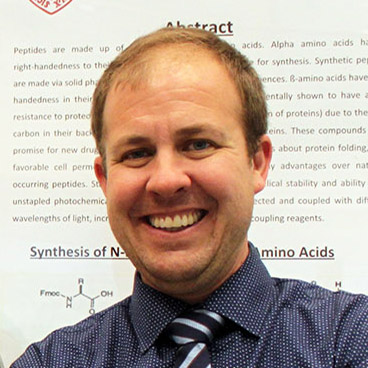 M. Elias DuekerEnvironmental Science
M. Elias DuekerEnvironmental Science
M. Elias Dueker
Environmental Science
Associate Professor of Environmental and Urban Studies; Director, Bard Center for the Study of Land, Air, and Water
Academic Program Affiliation(s): Biology, Environmental and Urban Studies
Professor Eli Dueker joined Bard in 2014 as the Assistant Professor of Environmental and Urban Studies. With a B.A. from Rhodes College, an MA, MPhil,and PhD, from Columbia University, he completed his postdoctoral research at Queens College, City University of New York, and Lamont-Doherty Earth Observatory of Columbia University. Additionally, he studied at Columbia University’s Ecology, Evolution, and Environmental Biology postbaccalaureate program. He is the recipient of grants and awards from the Hudson River Foundation, Janet Holden Adams Fund, and the DEC's Hudson River Estuary Program among others. His work has been published in Environmental Science and Technology, Biogeosciences, and Science of the Total Environment. Before entering academia, he worked for 14 years in the nonprofit world, including 10 years as an organizational development consultant addressing issues of race, class, gender, and sexuality in institutional structures, serving as the former director of Project Underground, an international environmental and human rights organization, and as a board member of Sylvia Rivera Law Project, a transgender law collective in NYC. He is the founder and Interim Leadership Team member of the Saw Kill Watershed Community, which protects the Saw Kill watershed and its ecological, recreational, and historic resources through hands-on science, education, and advocacy. His teaching interests include water quality, air quality, oceanography, urban ecology, environmental microbiology, and the role of science in addressing environmental justice issues.
RKC 214
[email protected]
eduekerlab.com -
 Felicia KeesingBiology
Felicia KeesingBiology
Felicia Keesing
Biology
David and Rosalie Rose Distinguished Professor of Science, Mathematics, and Computing
Felicia Keesing is a biologist who studies the consequences of interactions among species, particularly as biodiversity declines. Much of her recent work focuses on how species diversity influences the probability that humans and other animals will be exposed to infectious diseases. In addition, she has worked in Kenya for 15 years studying how the disappearance of elephants, giraffes, zebras, and other large mammals influences the way African savannas function. Keesing has published over 50 research articles and book chapters, and has received grant support from the National Geographic Society, the National Science Foundation, the Environmental Protection Agency, and the National Institutes of Health. In 2000, she received a United States Presidential Early Career Award for Scientists and Engineers (PECASE) from President Clinton. She serves on the national steering committee for the Vision and Change in Undergraduate Biology Education conferences sponsored by the National Science Foundation, the Howard Hughes Medical Institute, and the American Association for the Advancement of Science.
RKC 211
[email protected] -
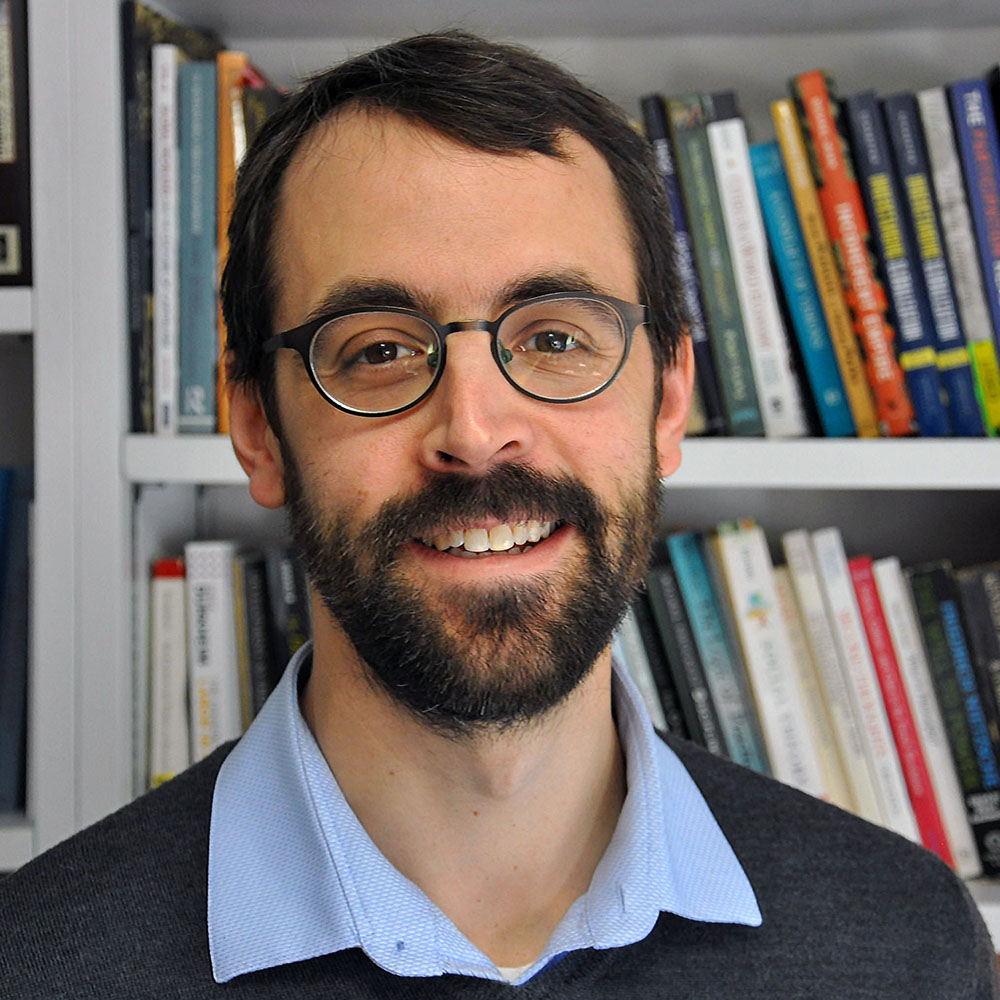 Peter KleinSociology
Peter KleinSociology
Peter Klein
Sociology
Associate Professor of Sociology and Environmental and Urban Studies; Director, Environmental and Urban Studies
Academic Program Affiliation(s): Environmental and Urban Studies, Sociology
Biography: Professor Peter Klein’s teaching and research focus on urban studies, environmental sociology, globalization and development, political sociology, and qualitative methods. He is engaged in research and community-based projects in both the United States and Brazil.
Peter’s research in Brazil focuses on public participation, urban and environmental change, and collective action in both Amazonia and Rio de Janeiro. His book manuscript, Flooded: Development, Democracy, and Brazil’s Belo Monte Dam (Rutgers University Press, 2022), provides an ethnographic account of the societal effects of the state’s attempt to mitigate the negative impacts of one of the world’s largest hydroelectric facilities with extensive social and economic resources. The book developed out of his PhD work, for which he won the best dissertation award in the Brazil section of the Latin American Studies Association. Peter continues to carry out research in the Brazilian Amazon, and his work extends to Rio de Janeiro. He engages with scholars, activists, and artists based in the city and the Global North, in efforts to reframe stigmatized understandings of Rio’s favelas, carry out research on environmental inequality, democratize academia, and rethink how knowledge is produced. Since 2019, Peter has been doing much of this work through Maré from the Inside, a visual and textual exhibit.
Peter also engages in teaching- and community-based participatory research and engagement in the United States on civic participation, environmental inequality, and housing insecurity. He cares deeply about student engagement in the world beyond the classroom, so that they can see the value of the ideas they learn in courses and apply them to civic and political work that matters to them. Through his courses and special projects, he works with students to actively participate in efforts in local communities, particularly the city of Kingston, that address environmental, housing, and other social justice issues.
Professor Klein’s published work appears in The Journal of Peasant Studies, Latin American Research Review, and American Journal of Sociology, among other academic journals. He is also co-author of The Civic Imagination: Making a Difference in American Political Life (2014).
[email protected] -
 Cecile E. KuznitzHistorical Studies
Cecile E. KuznitzHistorical Studies
Cecile E. Kuznitz
Historical Studies
Associate Professor of Jewish History; Director, Jewish Studies
AB, magna cum laude, Harvard University; MA, PhD, Stanford University. Awarded fellowships from American Council of Learned Societies (1997–98); Memorial Foundation for Jewish Culture (1999–2000); National Foundation for Jewish Culture (1999–2000); Center for Advanced Judaic Studies, University of Pennsylvania (2002); Oxford Centre for Hebrew and Jewish Studies (2004); United States Holocaust Memorial Museum (2007): YIVO Institute for Jewish Research (2014). Has lectured at YIVO Institute for Jewish Research, Harvard University, University of Maryland, University of Washington, University of Pennsylvania University of Vilnius. Author of YIVO and the Making of Modern Jewish Culture (Cambridge University Press, 2014). Articles published in The Yivo Encyclopedia of the Jews in Eastern Europe; S. Ansky at the Turn of the Century; The Oxford Handbook of Jewish Studies; Yiddish Language and Culture: Then and Now. Visiting assistant professor of Jewish history/Jewish studies, Georgetown University (2000– ). At Bard since 2003.
Fairbairn 202
[email protected] -
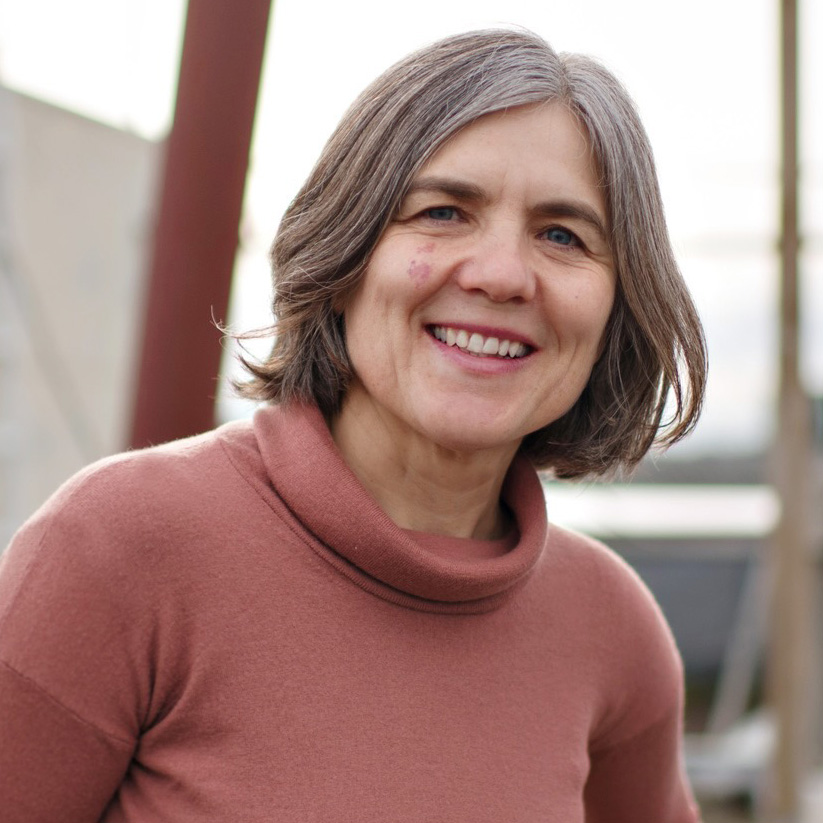 Beate G. LiepertEnvironmental and Urban Studies | Physics
Beate G. LiepertEnvironmental and Urban Studies | Physics
Beate G. Liepert
Environmental and Urban Studies | Physics
Visiting Professor of Environmental and Urban Studies and Physics
Academic Program Affiliation(s): Environmental and Urban Studies, Physics
Hegeman 314
[email protected]
Dr. Liepert is a climate scientist who investigates the role of aerosols in climate change. She contributed to the discovery of “global dimming,” a decline in the amount of solar energy reaching the Earth’s surface, which masks global warming and has implications on the planet’s water and carbon cycles. She comes to Bard from the Seattle area, where she was partner at NorthWest Research Associates, a scientist owned and operated think tank for basic and applied geosciences. Dr. Liepert founded Lumen LLC, a company that developed design solutions for solar cells, and advised start-ups Impact Bioenergy and TrueFlood Risk LLC in the clean tech and insurance fields. She was a lecturer in the Department of Civil and Environmental Engineering at Seattle University. Dr. Liepert started her science career as Doherty research scientist at Lamont-Doherty Earth Observatory of Columbia University and principal investigator for federal agencies such as NASA, NOAA, NSF, and DOE. Her work centers on fundamental questions of climate change and variability, from interannual to centennial time scales.
Additional activities have included serving as editor for Environmental Research Letters, an international UK-based interdisciplinary science journal; contributing author of the 5th assessment report of the Intergovernmental Panel on Climate Change Working Group 1, proposal reviewer and panelist for the National Science Foundation, NASA, NOAA, European Union among others; presenting at more than 50 international conferences and university colloquia; and authoring reviews and articles for journals including Bulletin of the American Meteorological Society, Journal of Climate, Frontiers, International Journal of Climatology, Quarterly Journal of the Royal Meteorological Society, and Global and Planetary Change, among many others. She has been interviewed on CNN and numerous international TV broadcasts; was a featured scientist in the BBC documentary Dimming the Sun, which aired on PBS NOVA; and was profiled in a “Talk of the Town” essay by Nick Paumgarten in the New Yorker. Professor Liepert is the recipient of the 2016 WINGS World Quest “Women of Discovery” Earth Award and in 2015 she delivered a Distinguished Scientist Lecture at Bard on “Dimming the Sun: How Clouds and Air Pollution Affect Global Climate.”
Diploma, Institute of Bioclimatology and Air Pollution Research, Ludwig-Maximilians University Munich; Doctor rer. nat., Institute of Meteorology, Department of Physics, Ludwig-Maximilians University; postdoctoral research scientist, Lamont-Doherty Earth Observatory of Columbia University; certificate program in fine arts, Parsons School of Design. -
 Christopher LindnerArchaeology
Christopher LindnerArchaeology
Christopher Lindner
Archaeology
Archaeologist in Residence; Director, Bard Archaeology Field School
AB, Hamilton College, with year abroad at University of Paris; MA, University of Cincinnati; PhD, Albany University
Archaeological projects at Bard, with students as technicians, average once a year as cultural resource investigations, a part of the College’s environmental impact assessment in advance of its major ground disturbances for buildings, pavings, etc. Lindner designs exhibits about this work, such as the “Gardener’s Lodge” panel on Blithewood Avenue, “Bardaeology” in the upstairs Hegeman hallway, and rotating displays at the Library. The Bard Lands have become the most archaeologically known terrain in this region of New York. They figure prominently in a 2011 chapter by Lindner in The Environmental History of the Hudson Valley, a book published by the State University of New York Press. A result of his long-term study for the NYS Department of Environmental Conservation is the panel “Archaeology of Fishing along the Estuary” on the Greenway Trail at the edge of Tivoli South Bay. It is also curated as an online exhibit on the website: inside.bard.edu/archaeology. Its poster, developed in conjunction with the Mohican studies group of the Native American Institute affiliated with the New York State Museum, is used in the local schools, with curricula Lindner designed with teachers to foster stewardship of archaeological sites. Lindner’s fall lab science course Field Methods in Environmental Archaeology provides Bard students experience in Cultural Resource Management [CRM], the field in which most current practitioners work. His spring humanities course Historical Archaeology’has its focus on adaptations in the Bard area over the last three centuries, particularly in regard to the first substantial German American settlement on this continent. Its results are the present center frame of the website above. A collaborative project with the Germantown history department and library has stimulated community awareness, with the result of local grant-funded summer field schools in historical archaeology and multiple exhibits to display discoveries. A similar project with the Black History Committee of the Dutchess County Historical Society has explored Guineatown in Hyde Park, an African American community around 200 years ago. A summary of its findings will appear as a chapter in the forthcoming book Race in the Northeast: Archaeological Studies of Racialization, Identity, and Memory, to be published by the Society for Historical Archaeology. Lindner served as president of the New York Archaeological Council, the state’s professional organization that mediates the practice of CRM within the NYS Environmental Quality Review Act. He led the local site preservation NGO, Hudson River Heritage, in its long-term effort to protect against inappropriate development near the waterfront for 16 miles with Bard at its center. He has worked as consultant for local citizen groups; municipalities, such as the towns of Rhinebeck and Pine Plains; and the National Park Service at the Roosevelt estate in Hyde Park.
Hopson 303
[email protected] -
 Peter L’OfficialLiterature
Peter L’OfficialLiterature
Peter L’Official
Literature
Assistant Professor of Literature
Primary Academic Program: Literature
Academic Program Affiliation(s): American Studies, Environmental and Urban Studies
Biography: BA, Williams College; MA, New York University; PhD, Harvard University. Areas of specialization include African American literature and culture, 20th- and 21st-century American literature, 20th- and 21st-century American art and architecture, and urban history, and his scholarly interests include cultural studies and art criticism. He has been an occasional contributor to Grantland, the Los Angeles Review of Books, GQ.com, and elsewhere. His book, Urban Legends: The South Bronx in Representation and Ruin, is in progress. Fellow at the Charles Warren Center for Studies in American History at Harvard University in 2014–15. At Bard since 2015.
Aspinwall 310
[email protected] -
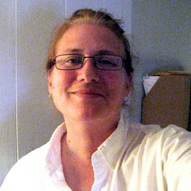 Susan MerriamArt History
Susan MerriamArt History
Susan Merriam
Art History
Associate Professor of Art History
BFA, School of the Museum of Fine Arts and Tufts University; MA, Tufts University; PhD, Harvard University. Awards and fellowships include Mellon Foundation Fellowship (1996); Belgian American Educational Foundation Fellowship (1997); Center for Advanced Studies in the Visual Arts, National Gallery, Washington, Robert H. and Clarice Smith Fellow (1999); Derek Bok Center, Harvard University, Distinction in Teaching Awards (1999–2002). Visiting instructor, Massachusetts College of Art (2001), Rhode Island School of Design (2001–02), University of Massachusetts (2002), Harvard University (2003). Faculty, Language and Thinking Program at Bard College. At Bard since 2003.
Fisher Annex 115
[email protected] -
 Gabriel G. PerronBiology
Gabriel G. PerronBiology
Gabriel G. Perron
Biology
Assistant Professor of Biology
Gabriel G. Perron is an evolutionary biologist who studies the emergence of medically important traits in a broad range of microorganisms. His research uses a combination of real-time evolution experiments, genomic and metagenomic approaches, and field studies to understand how bacteria evolve antimicrobial resistance. Using different microbial systems, including bacteria such as Salmonella, Dr. Perron work seeks to understand the impact of human activity on the presence of antibiotic-resistant bacteria in natural environments and its possible impact on public health issues. More recently, he has also been studying the impact of human activity on microbial communities found in polar regions.
RKC 216
[email protected] -
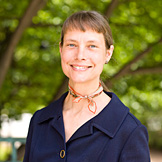 Jennifer G. PhillipsBard Center for Environmental Policy
Jennifer G. PhillipsBard Center for Environmental Policy
Jennifer G. Phillips
Bard Center for Environmental Policy
Assistant Professor, Bard Center for Environmental Policy
BS, Hunter College; MS, PhD in soil, crop, and atmosphere science, Cornell University. Previous to joining Bard CEP, she was a researcher at the International Research Institute for Climate Prediction, Columbia University, and NASA Goddard Institute for Space Studies. Expertise in the impact of climate change and variability on farming systems, communication and perception of climate information for farm management, and sustainable farming systems. After eight years of research in eastern and southern Africa, she worked with farmers in eastern New York State on climate risk management, adaptation to climate change, and sustainability in the face of extreme climate events. Current interests include pasture-based livestock systems, carbon storage and management in agroecosystems, and rhizosphere processes. Articles in Agricultural Systems, Agricultural and Forest Meteorology, Climatology, and International Journal of Climatology; and several book chapters.
Hegeman 004
[email protected]
Gansvoort Farm -
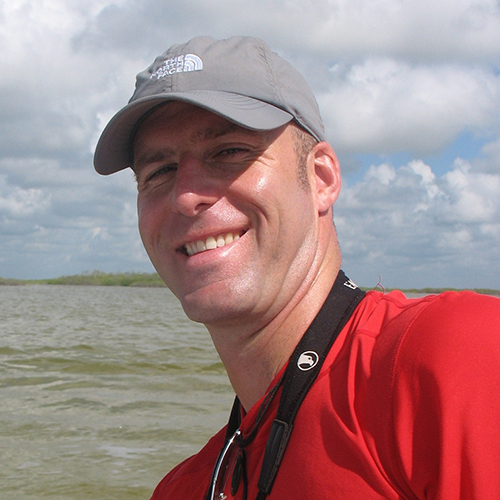 Bruce RobertsonBiology
Bruce RobertsonBiology
Bruce Robertson
Biology
Associate Professor of Biology
Bruce Robertson is a conservation ecologist. His research focuses on questions that address important conservation issues, but that also provide fundamental insights into ecological theory. Broadly speaking, he investigates the direct and indirect impacts of human activities on biodiversity, species persistence and species interactions with special emphasis on how rapidly changing environments may disrupt evolved relationships and trigger maladaptation. He is especially interested in cases in which novel environments trigger animals to actually prefer to make inappropriate, detrimental and often dangerous decisions. These scenarios are known as evolutionary traps. Traps are an emerging conservation problem that can contribute population declines in species of concern. He collaborates extensively on a variety of projects including a study of the impact of new forms of pollution (polarized light pollution) on aquatic insects, and research investigating how to grow next generation bioenergy crops that facilitate the conservation of biodiversity. Trained as an ornithologist, Bruce increasingly uses arthropods, mammals and plants as study organisms.
RKC 213
[email protected] -
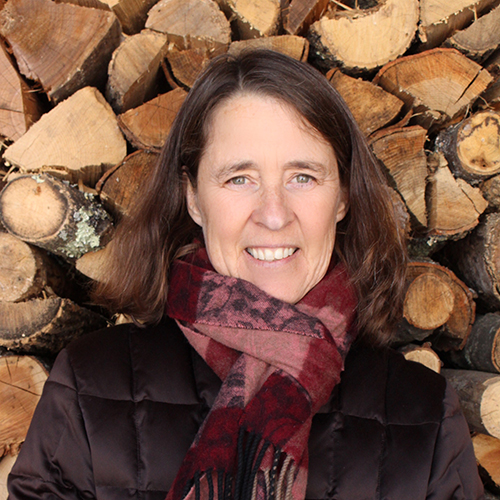 Susan RogersWritten Arts
Susan RogersWritten Arts
Susan Rogers
Written Arts
Visiting Associate Professor of Writing
Susan Fox Rogers is the author of My Reach: A Hudson River Memoir (Cornell University Press). In this work she explores the Hudson River from the perspective of her kayak, and weaves in the natural and built history of this region, as well as the story of her family. This book grew out of the EUS course she teaches, Reading and Writing the Hudson. All of her writing has to do with place, and the natural world. She is the editor of 12 book anthologies including Solo: On Her Own Adventure (Seal Press), Going Alone: Women’s Adventures in the Wild (Seal Press), and Alaska Passages: 20 Voices from Above the 54th Parallel (Sasquatch Books). She compiled Antarctica: Life on the Ice (Traveler’s Tales) while on a National Science Foundation grant for writers in Antarctica. She has taught at Bard College since 2001, teaching First-Year Seminar, a range of creative nonfiction workshops, and a nature writing class.
Shafer House 102
[email protected] -
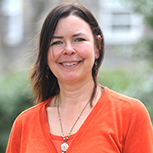 Monique SegarraBard Center for Environmental Policy
Monique SegarraBard Center for Environmental Policy
Monique Segarra
Bard Center for Environmental Policy
Visiting Professor, Bard Center for Environmental Policy
BA, Brandeis University in Political Science; MIA, School of International and Public Affairs, Columbia University; PhD, comparative politics and Latin America, Columbia University. Areas of interest include sustainable development, international environmental politics and the increasingly contentious politics surrounding natural resource management in Latin America. Current research focuses on the politics of water reform in Oaxaca, Mexico and comparative analysis of human and environmental rights movements challenging mineral and oil policies of states and multinational corporations in Ecuador, Mexico, and Chile. She has published articles in journals such as Latin American Politics and Society andThe Journal of Contemporary Sociology, and has edited and contributed to The New Politics of Inequality in Latin America. She has a forthcoming chapter on human rights and the environment in Latin America in Human Rights: Challenges of the Past/Challenges for the Future. In addition to research and teaching, she has worked with a range of international development and research institutions, including the World Bank, the United Nations Development Program, and the Council on Foreign Relations, and the Social Science Research Council. Member, BCEP Graduate Committee.
Hegeman 302
[email protected] -
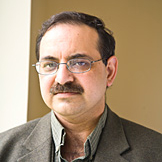 Gautam SethiBard Center for Environmental Policy
Gautam SethiBard Center for Environmental Policy
Gautam Sethi
Bard Center for Environmental Policy
Faculty, Bard Center for Environmental Policy
BA, University of Delhi; MA, Delhi School of Economics; MPhil, Jawaharlal Nehru University, New Delhi, master’s thesis on the conflicts between utilitarianism and libertarianism; Fellow, University of Texas, Austin; Ph. D., University of California, Berkeley (Outstanding Graduate Student Instructor Award). Professor Sethi's research at the University of California, Berkeley, was focused on developing mathematical models and rules of fishery policy under uncertainty. While his initial postdoctoral work continued with this theme, he has since moved away from fisheries research to other areas. Current research involves two projects that are based on the socioecological synthesis (SES) framework. One of these is a collaborative exercise with Mary Blair, an ecologist at the Center for Biodiversity Conservation, New York, and anthropologists at Vietnam National University, Hanoi, is an attempt to identify the drivers of slow loris hunting in Vietnam. In addition, He is working with Amy Krakowka Richmond from the United States Military Academy at West Point to develop a household level index of vulnerability in order to identify various stressors that adversely impact household well being in East Africa, with an initial focus on Uganda, specifically focusing on water scarcity as a major stressor in order to develop cogent policy solutions to mitigate, and perhaps reverse, current trends.
As an economist and a statistician, Professor Sethi places very strong emphasis on conveying the core conceptual ideas of both these disciplines in simple terms. While there are a number of excellent papers and textbooks that explain economic concepts well, the lack of a statistics textbook that delves deeper into statistical ideas has spurred him to write one of my own. The textbook he is developing differentiates itself from existing books in that it develops a common frame for testing all hypotheses, explains the relationship between various distributions that allows students to logically deduce the appropriate statistical test for their research design, explains what estimators are and how to choose among them, and develops the connection between the Pythagorean theorem, the law of cosines, and methods such as ANOVA and regression, thereby showing deep connections among geometry, trigonometry, and statistics.
Hegeman 005
[email protected] -
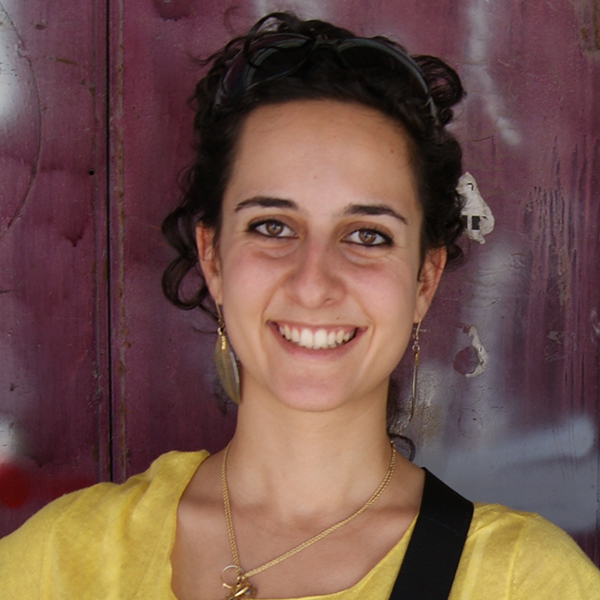 Sophia Stamatopoulou-RobbinsAnthropology
Sophia Stamatopoulou-RobbinsAnthropology
Sophia Stamatopoulou-Robbins
Anthropology
Assistant Professor of Anthropology
Program Affiliations: Middle Eastern Studies and Human Rights
Sophia Stamatopoulou-Robbins joined Bard in 2013. She holds a BA in anthropology and human rights from Columbia University, an Msc in forced migration from the University of Oxford, and a PhD in anthropology from Columbia University. Her research has been awarded funding by the National Science Foundation, the Social Science Research Council, the Wenner Gren Foundation, Columbia University, the Palestinian American Research Council and Georgetown University’s Center for Contemporary Arab Studies. Based on fieldwork in the West Bank between 2007 and 2016, her current book project, provisionally titled Waste Siege: Improvisation, Precarity and Infrastructure in Twenty-First Century Palestine, explores what happens when, as Palestinians are increasingly forced into proximity with their own wastes and with those of their occupiers, waste is transformed from “matter out of place” into matter with no place to go. Her research thus highlights the intersections of garbage, sewage and waste markets with changing experiences of governance and occupation in post-Oslo Palestine. Her publications include pieces in Comparative Studies of South Asia, Africa and the Middle East, The Jerusalem Quarterly, Anthropology News, The New Centennial Review, and the Refugee Studies Centre Working Paper Series at the University of Oxford. She has presented her work at invited sessions of the American Anthropological Association annual meetings, at the annual meetings of the Middle East Studies Association, Brown University’s New Directions in Palestinian Studies, the American Ethnological Society, the Association of American Geographers, and the Modern Greek Studies Association, as well as at a number of venues in Palestine. Her broader research and teaching interests include the anthropology of the state, infrastructure, science and environment in the Middle East, climate change adaptation, colonialism and postcolonial theory, discard studies, the anthropology of work, austerity and assisted reproduction.
Hopson 304
[email protected] -
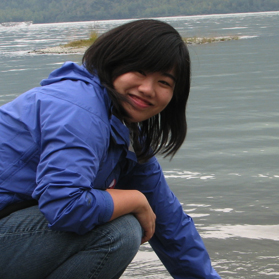 Yuka SuzukiAnthropology
Yuka SuzukiAnthropology

Yuka Suzuki
Anthropology
Associate Professor of Anthropology
BA, Cornell University; PhD, Yale University. Awards include Social Science Research Council International Dissertation Research Grant (1998–99); Wenner-Gren Foundation Predoctoral Research Grant (1998–99). Author, “Drifting Rhinos and Fluid Properties: The Turn to Wildlife Production in Zimbabwe” (Journal of Agrarian Change); coeditor, Zimbabwe: The Politics of Crisis and the Crisis of Politics. Teaching experience at Georgetown University (2001–02), Yale University, Quinnipiac University. At Bard since 2003.
Hopson 302
[email protected] -
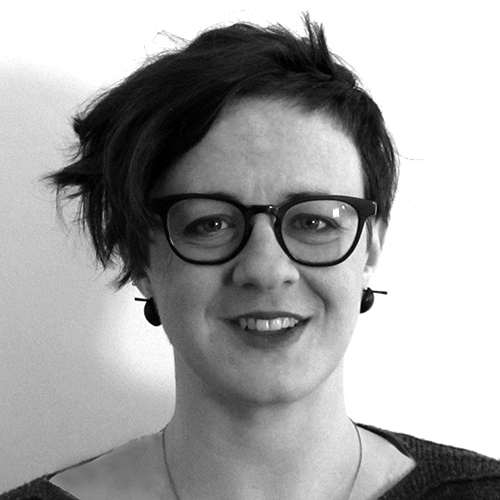 Olga TouloumiArt History
Olga TouloumiArt History
Olga Touloumi
Art History
Assistant Professor of Art History
Olga Touloumi is an architect, curator, and historian of architecture. She researches the role of media and technology in the production of the built environment, bringing forth questions of networks, interiority, and publics. Her book-in-progress Architectures of Global Communication situates mid-20th-century constructions of globality within debates on media democracies and efforts to institutionally reorganize the world. Her work investigates architectural history in the intersection of media theory, sound studies, and the history of technology. Touloumi has presented her research on systems thinking, sound modernities, and multimedia environments at DOCOMOMO, SAH, the Courtauld Institute, Buell, and elsewhere, while publishing in Thresholds and the edited anthologies Soft Shells, Xenakis Matters, Music and Modernism c. 1849–1950, and Architecture Is All Over. She has coorganized the symposium “Mediated Space” and the conference “Futures Past: Design and the Machine,” and cocurated A Media Archaeology of Boston at the Carpenter Center and Made in Greece Plus at the Museum of Science, Boston. Her research has been supported by fellowships from the Alexander S. Onassis Foundation, Canadian Center for Architecture, Andrew W. Mellon Foundation, and Harvard University. Before joining Bard, Touloumi taught architectural history at MIT and Harvard.
Fisher Studio Arts 156
[email protected] -
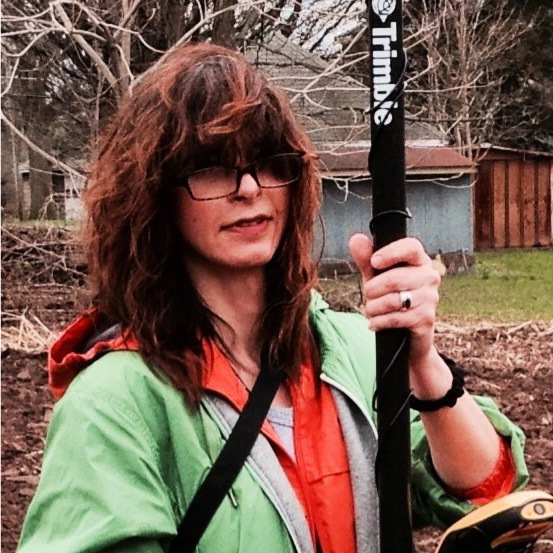 Susan Winchell-SweeneyBard Center for Environmental Policy
Susan Winchell-SweeneyBard Center for Environmental Policy
Susan Winchell-Sweeney
Bard Center for Environmental Policy
Faculty, Bard Center for Environmental Policy
Susan Winchell-Sweeney, GISP, is a research and collections technician for the Department of Anthropology at the New York State Museum. An archeologist by education and training, Winchell-Sweeney’s area of expertise is the application of geospatial technologies in archeological research and cartography. She has over 15 years of experience providing GIS analysis, GPS, and cartographic services for archeological projects and has worked for private individuals, nonprofit organizations, New York State, and the federal government.
[email protected]
Associate and Visiting Faculty
LOA = Leave of absence
-
Associate Faculty
Associate Faculty
Julia Rosenbaum Art History
Brooke Jude Biology
Victor Tafur CEP
Sanjaya DeSilva Economics
Christian Crouch History
Nathan Shockey Literature, Japanese
Olga Voronina Literature, Russian Studies
Ken Buhler Studio Arts
Adriane Colburn Studio Arts
Lisa Sanditz Studio Arts -
Visiting Faculty
Visiting Faculty
Mike Aziz Visiting Designer in Residence, EUS
Jon Bowermaster Visiting Lecturer, EUS
Tatjana Myoko von Prittwitz und Gaffron EUS, Buddhist Chaplain (LOA 2019–20)
Christopher Bowser, Visiting Faculty, EUS
Faculty Emeritus
-
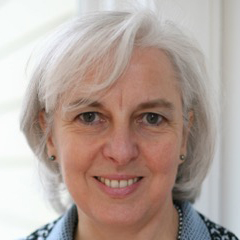 Michèle D. DominyProfessor Emerita and Research Professor of Anthropology
Michèle D. DominyProfessor Emerita and Research Professor of Anthropology
Michèle D. Dominy
Professor Emerita and Research Professor of Anthropology
Professor of Anthropology and Environmental and Urban Studies
Academic Program Affiliation(s): Anthropology, Environmental and Urban Studies, Gender and Sexuality Studies, Global and International Studies
Academic Expertise: Anthropology
Area of Specialization: Social and cultural anthropology
Biography
AB (honors), Bryn Mawr College; MA, PhD, Cornell University. Awards and fellowships: Cornell University and Center for International Studies; National Science Foundation; United States/New Zealand Council; Wenner-Gren Foundation; National Endowment for the Humanities; Cultural Heritage Conservation Research Centre at the University of Canberra; Bard Research Fund. Field research in New Zealand and Australia. Author, Calling the Station Home: Place and Identity in New Zealand’s High Country (2001); and articles and reviews in Signs, New Zealand Women’s Studies Journal, Pacific Studies, Anthropology Today, Gender and Society, Pacific Affairs, Landfall: A New Zealand Quarterly, Journal of Linguistic Anthropology, Forest and Conservation History, American Ethnologist, Anthropological Forum, Cultural Anthropology, Man, Landscape Review, Current Anthropology, Journal of Political Ecology, Ecumene, The Contemporary Pacific, and edited volumes and proceedings. Guest coeditor of special issue of Anthropological Forum on “Critical Ethnography in the Pacific.” Served on the editorial board of American Anthropologist and on the boards of the American Conference of Academic Deans and the Environmental Consortium of Colleges and Universities. Past editor, Pacific Monograph Series, University of Pennsylvania Press. Honorary life member of the American Anthropological Association; Fellow of the Association for Social Anthropology in Oceania, Royal Anthropological Association of Great Britain and Northern Ireland, and Society for Applied Anthropology. Evaluator, Middle States Commission on Higher Education. At Bard since 1981.
[email protected]
-
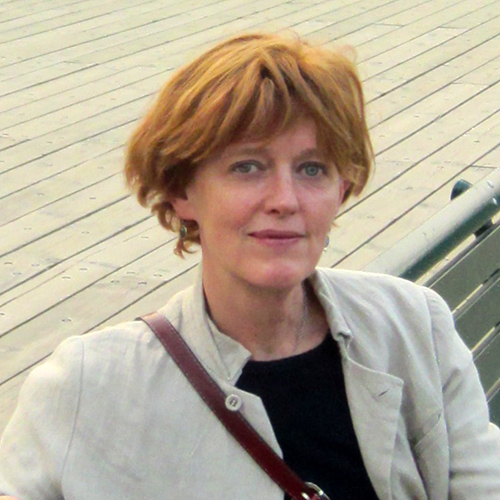 Ellen DriscollProfessor Emeritus of Studio Arts
Ellen DriscollProfessor Emeritus of Studio Arts
Ellen Driscoll
Professor Emeritus of Studio Arts
B.A., Wesleyan University; M.F.A., sculpture, Columbia University. Previously taught at Rhode Island School of Design, where she served as department head of sculpture. Has also been affiliated with the School of the Museum of Fine Arts in Boston, Princeton University, and Parsons the New School for Design. Teaching and research interests include public art, sculpture and installation, drawing, enviromental justice, and civil rights. Her work has been exhibited in nearly one hundred solo and group shows throughout the country and internationally, including Whitney Museum at Phillip Morris, Frederieke Taylor Gallery, Thread Waxing Space, New-York Historical Society, Grand Central Terminal, and Damon Brandt Gallery in Manhattan; SmackMellon and Long Island University, Brooklyn; West Cork Arts Centre, Ireland; Nippon Ginko Bank, Hiroshima, Japan; Museum of Contemporary Art, Denver; Boston Center for the Arts; Contemporary Arts Center, Cincinnati, and others. She is represented in many public and private collections, including the Boston Public Library, Detroit Institute of Arts, Massachusetts Institute of Technology, Metropolitan Museum of Art, and Whitney Museum of American Art. Awards and honors include fellowships from the Guggenheim Foundation, National Endowment for the Arts, Bunting Institute at Harvard University, and New York Foundation for the Arts; residencies at Sirius Art Centre (Cork, Ireland), MacDowell Colony, and Banff Centre for the Arts; and grants from the New England Foundation for the Arts and LEF Foundation, among others. Reviews of her work have appeared in the New York Times, Art in America, Art New England, Sculpture Magazine, and Interior Design. At Bard since 2013.
[email protected] -
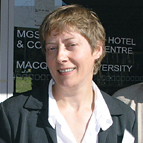 Kris FederAssociate Professor Emeritus of Economics
Kris FederAssociate Professor Emeritus of Economics
Kris Feder
Associate Professor Emeritus of Economics
B.A., University of Pennsylvania; Ph.D., Temple University. Dissertation: "Issues in the Theory of Land Value Taxation." Specialization in public-sector economics and history of economic thought. Temple University awards: Russell Conwell Fellowship (1984–86), University Fellowship (1983–84), summer tuition scholarship (1984). Taught at Franklin and Marshall College, West Chester University, and Temple University. Coauthor, "What's Missing from the Capital Gains Debate," Levy Institute Public Policy Brief No. 32 (1997). Contributor, The Corruption of Economics (1994), Beyond Neoclassical Economics: Heterodox Approaches to Economic Theory (1995), and Critics of Henry George (2003). At Bard since 1991.
[email protected]


























